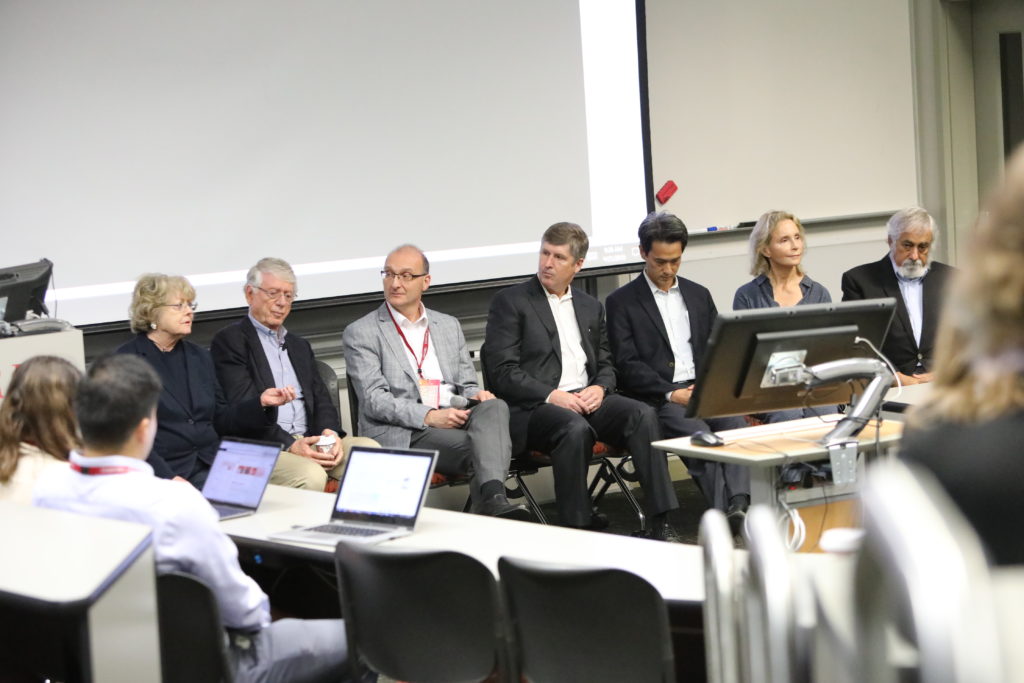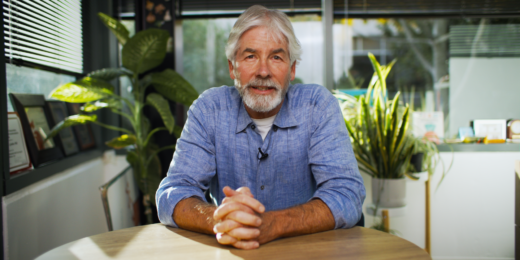When asked who should care about chronic obstructive pulmonary disease, Grace Anne Dorney Koppel quickly quips, "anyone who breathes air."
As she took the stage at Stanford Medicine's Li Ka Shing Center for Learning and Knowledge this weekend, her husband, broadcast journalist Ted Koppel was at her side. She took his hand and looked out at the audience in a way that spoke volumes -- she wasn't on the Stanford Medicine X | CHANGE stage because she sought attention, she was there on a mission.
"In 2001, I wasn't able to breathe well," Grace Anne began. "I went to my longtime family doctor and got 'the works' -- a physical, blood studies, chest x-rays, an EKG... The diagnosis was I was in excellent health, but if I lost 10 pounds I might feel like a new woman. Two weeks later, I literally collapsed."
Grace Anne received testing at a major medical center and a spirometry test revealed she'd lost about 75% of her lung function. She was diagnosed with COPD, a term given to a suite of diseases, (including emphysema, chronic bronchitis and non-reversible asthma), that can make lung tissue stiff. The symptoms -- shortness of breath, chest tightness, coughing -- manifest so slowly that most doctors and patients tend to dismiss them as signs of exhaustion, a cold or flu, or an inevitable part of aging.
Grace Anne was given three to five years left to live.
"I wasn't ready -- I guess none of us are -- to meet the disease that's going to be our biggest challenge," Grace Anne said.
The prognosis shocked her, but the script she received for pulmonary rehabilitation gave her hope.
By taking medications for COPD and diligently following her pulmonary rehabilitation plan, which includes exercising daily and using specialized breathing techniques, Grace Anne says she's been able to, "live, work, contribute and maintain dignity for 18 years," after being diagnosed with COPD.
Unfortunately, only an estimated 3% of COPD patients that need a pulmonary rehabilitation facility have access to one, Grace Anne explained. Moreover, many people with COPD don't even know they have it or what it is.
"I didn't know or care about COPD until the person I love most in the world was diagnosed as having it, my wife Grace Anne," Ted said.
Once Grace Anne was diagnosed with COPD, Grace Anne and Ted started researching the condition and were surprised by what they found.
"Thirty million people in this country have COPD," Ted said. "Twelve to 15 million of these people have not yet been diagnosed, and about 165,000 Americans die of this disease every year. That is more than all the Americans who died in Korea and Vietnam and Iraq and Afghanistan put together."
Grace Anne added, "COPD is the third most common killer for people living in the United States. ... Yet, it ranks about 165th in congressional appropriations for research at the NIH."
To "raise the profile of COPD," Grace Anne and Ted created the Dorney-Koppel Foundation and have co-funded pulmonary rehabilitation clinics across the country. They're also leading this year's Educational Grand Challenge at the Stanford Medicine X | CHANGE conference.

The challenge, which lasts until December, is an effort to generate new solutions to help people with COPD. More than 40 people, including patients, physicians and researchers, are involved. In a series of tweet chats and in-person meetings, they will explore and brainstorm solutions to five key problems related to COPD using the principles of Design Thinking.
Grace Anne describes herself as, "a very private person," but the lack of awareness and funding for COPD motivated her to speak out for the millions of people with COPD that cannot speak for themselves.
"I'm an attorney. I'm a behavioral scientist. I'm a wife and mother. Why should I do this?" Grace Anne said. "I made the decision, I'll give up my privacy, because there are so many people [with COPD] out there. I hope I can empower them to come forward... They may not feel that they have the skills [to be advocates], but it's the stories that matter. It's the stories that move people."
Photos courtesy of Stanford Medicine X | CHANGE




